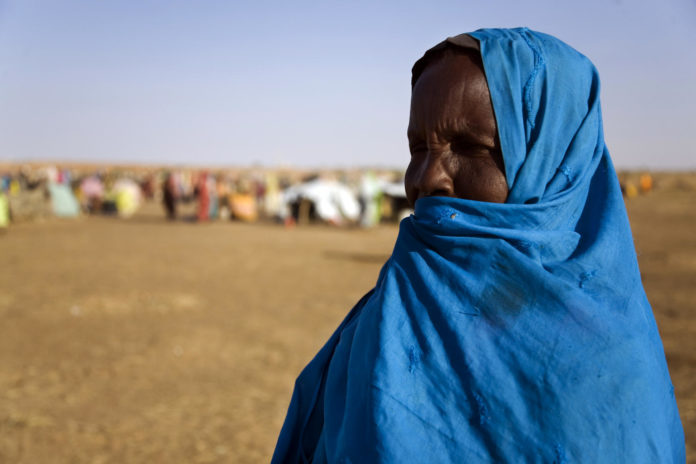Avec plus de 4 millions de déplacés, le Haut-Commissariat des Réfugiés (HCR) est vivement préoccupé par la détérioration des conditions sanitaires au Soudan depuis avril 2023. La situation est également inquiétante dans les 10 camps de réfugiés ainsi qu’aux points d’entrée frontaliers et dans les centres de transit des pays voisins, où arrivent les personnes forcées de fuir.
Selon les équipes de l’agence des Nations Unies en charge des Réfugiés (HCR) présentes sur le terrain, les besoins dépassent de loin ce qui est possible de fournir avec les ressources disponibles. Dans l’État du Nil Blanc, le manque de médicaments essentiels, de personnel et de fournitures entrave gravement les services de santé et de nutrition dans les 10 camps de réfugiés, où plus de 144.000 réfugiés nouvellement déplacés de Khartoum sont arrivés depuis le début des affrontements entre les forces des généraux Abdel Fattah al-Burhane et Mohamed Hamdane Daglo. Les cliniques doivent également s’occuper des milliers de réfugiés Sud-Soudanais et des communautés locales.
De nombreux déplacements
Plus de 4 millions de personnes ont été contraintes de fuir à l’intérieur du Soudan et dans les régions limitrophes depuis le début du conflit. Ce chiffre comprend près de 700.000 réfugiés et demandeurs d’asile qui ont fui vers les pays voisins, et 195.000 Sud-Soudanais contraints de retourner dans leur pays d’origine. Au Soudan, plus de 3 millions de personnes sont des déplacées internes, dont plus de 187.000 réfugiés qui résidaient déjà dans le pays au début de la crise.
Augmentation des décès
D’après le porte-parole du HCR à Genève, William Spindler, on continue d’observer une augmentation des taux de malnutrition, des épidémies et de décès liés aux déplacements des familles, munies de peu de nourriture. Entre le 15 mai et le 17 juillet, plus de 300 décès, principalement chez les enfants de moins de 5 ans, ont été signalés en raison de la rougeole et de la malnutrition. Si le financement des programmes de santé vitaux continue d’être retardé, ce chiffre augmentera probablement.
Services de santé débordés
La pénurie chronique de personnel de santé, ainsi que les attaques contre ses membres signalées par l’Organisation Mondiale de la Santé, ont considérablement compromis la qualité des soins dans l’ensemble du Soudan. D’une part, les services de santé sont surchargés et d’autre part, la rupture des chaînes d’approvisionnement a entraîné une pénurie de médicaments et d’autres fournitures. En outre, on s’attend à une augmentation du nombre de cas de choléra et de paludisme dans les mois à venir en raison des inondations dues aux pluies incessantes et de l’insuffisance des installations sanitaires.
Pays limitrophes
De l’autre côté des frontières, la situation est tout aussi sombre. L’état sanitaire et nutritionnel des personnes arrivant du Soudan s’est fortement dégradé depuis le début du conflit en avril et continue d’empirer. Le sous-financement entrave gravement la réponse apportée au Sud-Soudan, où 57 enfants, la plupart âgés de moins de 5 ans, sont morts de la rougeole et de malnutrition à Renk (Etat du Nil supérieur). De même, au Tchad, seules 17 cliniques mobiles sont opérationnelles sur 15 sites dans les zones frontalières et les camps de réfugiés où les gens arrivent. Plus de 2 400 réfugiés et rapatriés blessés sont arrivés jusqu’à présent, nécessitant des soins médicaux urgents, avec environ 130 blessés admis chaque jour en juin.
Efforts du HCR
En collaboration avec les partenaires du secteur de la santé et les autorités gouvernementales, le HCR s’efforce d’intensifier la réponse. Les agences humanitaires ont déployé du personnel et des volontaires supplémentaires dans les camps, les points d’entrée frontaliers et les centres de transit afin de soutenir le dépistage de la malnutrition et d’autres services. Les équipes fournissent également des kits médicaux, augmentent le nombre de vaccinations contre la rougeole pour les enfants et réhabilitent les installations existantes tout en en créant de nouvelles. Le porte-parole de l’agence en charge des réfugiés a déclaré que « nous faisons tout ce qui est en notre pouvoir pour déplacer rapidement les nouveaux arrivants des points d’entrée frontaliers et des centres de transit afin d’éviter la surpopulation et de freiner la propagation de maladies mortelles. Toutefois, nous avons besoin d’un soutien accru de la part des donateurs pour sauver des vies ».
Fonds nécessaires
Des fonds supplémentaires sont désespérément nécessaires pour soutenir la fourniture de soins de santé et d’autres aides permettant de sauver des vies. Sur les 566 millions de dollars requis par le HCR et d’autres partenaires afin de fournir une assistance aux pays voisins du Soudan, seuls 29 % ont été reçus. La réponse inter-agences à l’intérieur du Soudan n’est financée qu’à hauteur de 24 %.


